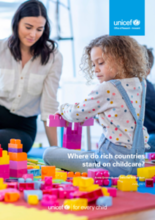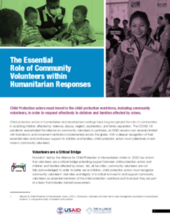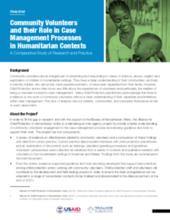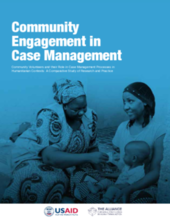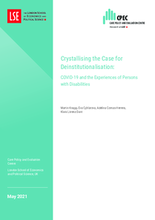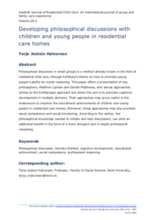Displaying 341 - 350 of 1343
This report published by UNICEF’s Office of Research – Innocenti, ranks countries across the Organisation for Economic Co-operation and Development (OECD) and the European Union (EU) based on their national childcare and parental leave policies.
This is a 3-page document targeting donors, policy makers, and UN agencies regarding the roles of volunteers and how decision makers can support their roles
The Alliance for Child Protection in Humanitarian Action undertook an inter-agency project to provide a better understanding of community volunteers’ engagement in the case management process and develop guidance and tools to support their work.
Community volunteers are an integral part of preventing and responding to cases of violence, abuse, neglect and exploitation of children in humanitarian settings. They have a deep understanding of their communities, and help to identify children who are at-risk, have experienced harm, or have been separated from their family. Following global and field research conducted in 2020, the Alliance has produced key resources related to the roles of community volunteers in Child Protection case management in humanitarian settings.
The goal of the present study was to provide data on pre-trip preparation, in-country activities, and how these impacted volunteer perceptions of preparation and trip satisfaction for volunteers working with vulnerable children, including those in residential care (ex. orphanages).
Millions of persons with disabilities, children and older persons live in congregate settings. Whilst the motivation for providing such care may be well-intentioned, that is not always the case. Many of those settings are ‘institutional’, with residents denied autonomy and choice, provided with poor quality health and social care, and experiencing social isolation, neglect or abuse. This report summarises the evidence and experiences of persons living in congregate settings in general, and in terms of the impact of COVID-19, to understand the barriers to deinstitutionalisation, and to highlight the approaches that have sought to overcome those barriers.
This second volume of the special issue “Protecting children from maltreatment during COVID-19" is a continuation of the first and comprises studies intended to address two core questions: (1) how does COVID-19 impact the rates of child maltreatment (CM); and (2) how does COVID-19 impact the delivery of child protective service responses.
The aim of this paper is to examine how a strengths-based approach facilitates working relationships between child welfare services and families.
Since the 1980s, an increasing number of researchers have focused on the educational attainment of looked-after children. Children in residential homes are in high risk of educational failure, and such failure may cause social problems later in life. Several scholars have called for efforts to promote lookedafter children’s ability to cope with academic challenges.
With millions of children worldwide living in alternative care settings, this article applies the learning from implementation science to advance the sector’s thinking around what needs to be in place to ensure consistently high-quality residential care.

